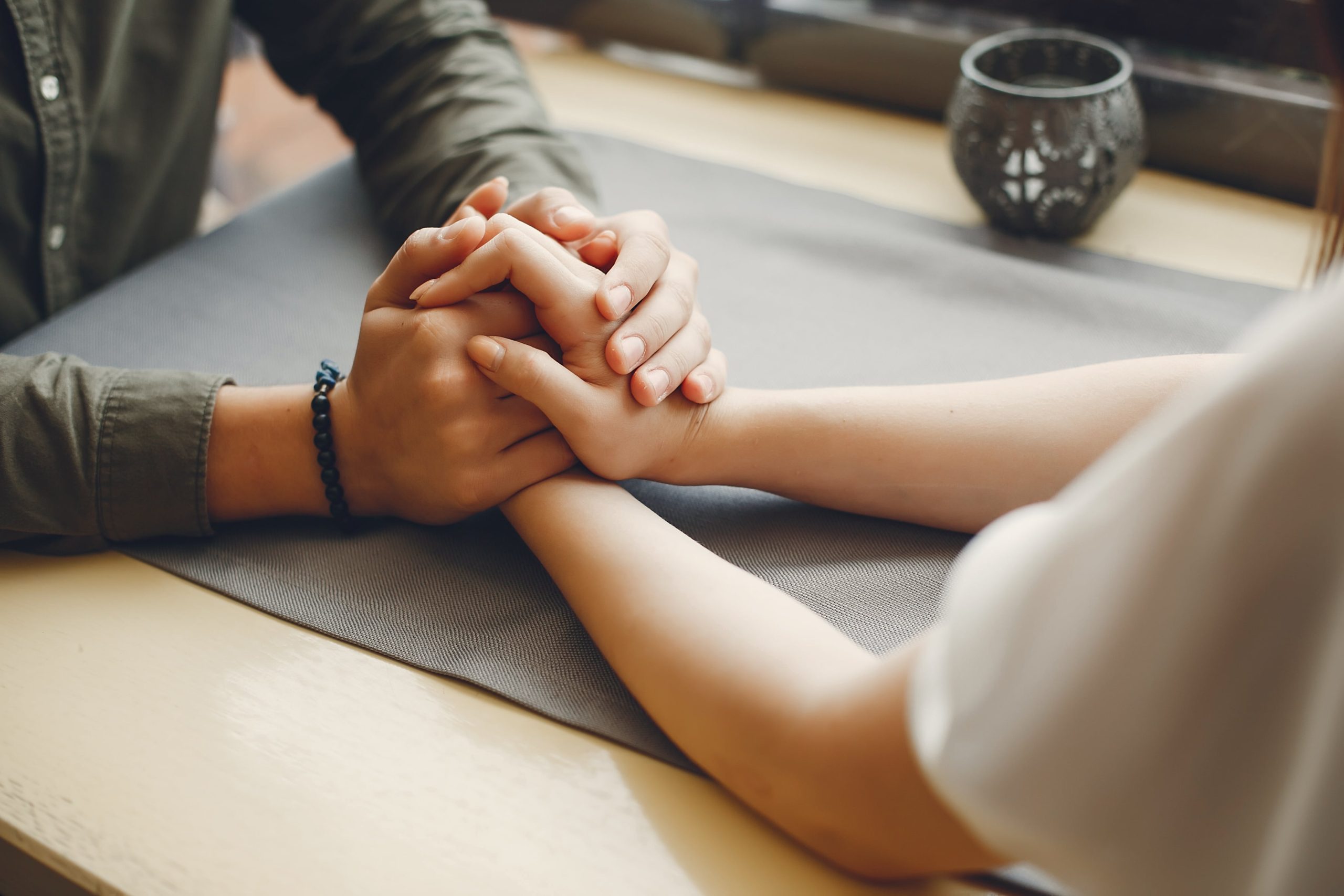Social Media and Mental Health
(Portrayal of social media’s toll on mental health, as a boy succumbs to distraction amidst a sea of unfinished responsibilities. Captured by Shiuli Aggarwal)
Disclaimer: Please note that this article provides a general perspective on the relationship between social media and mental health. It’s important to consider individual differences in mental resilience, capabilities, and specific conditions such as ADHD or autism. For example, individuals with ADHD or autism may experience more distractions and potential detriments to their well-being when engaging with social media compared to those without these conditions.
How many hours do you spend on Instagram, YouTube, Facebook, or any other such social media platform per day? Do you find yourself mindlessly scrolling? Most of us (if not all), admit that at some point/s in our lives we have been enslaved by social media addiction. It is like any other addiction and plays into our psychology and physiology- one that gets us entangled in a cycle that is hard to escape.
I’m not suggesting deleting all the social apps from your phone; but the question is – how do we integrate a balance between social media and daily life and most importantly sustain it? What are the implications of being addicted to social media?
Introduction to this article:
As artificial intelligence is becoming increasingly integrated into our daily lives, it’s important to examine its impact on various aspects of our well-being. The rapid advancement in technology and AI are progressing at a rate faster than our ability to adapt, resulting in our continued primitive response to it. It affects our physiology and psychology, often without conscious awareness. One area that has seen a significant transformation is social media and its influence on mental health. With the rise of platforms like Facebook, Instagram, Twitter, and more, we are more connected than ever before.
BUT.. This newfound connectivity also brings with it a set of challenges and concerns. In this article, we will explore the complex relationship between social media and mental health, delving into both the positive and negative effects it can have on individuals. By understanding the interplay between these two, we can navigate the digital landscape with greater awareness and safeguard our mental well-being in an AI-driven world. So, let’s start by examining its effects on our emotions, self-esteem, relationships, and overall psychological well-being.
The Dark Side:
Scientific-based implications:
These studies provide empirical evidence of the implications of social media addiction on mental health, well-being, interpersonal relationships, physical health, and cognitive function.
Mental health issues:
Numerous studies have linked social media addiction to mental health problems.
- Excessive use of social media was associated with higher levels of anxiety and depression in adolescents (Boers et al., 2019).
- Another study found a positive correlation between social media addiction and symptoms of social anxiety and depression in young adults (Bányai et al., 2017).
Decreased well-being:
Research has consistently demonstrated a negative impact of social media addiction on overall well-being.
- limiting social media use to 30 minutes per day significantly reduced feelings of loneliness and depression compared to control groups (Hunt et al., 2018).
- Excessive use of social media was associated with lower life satisfaction and happiness (Shakya & Christakis, 2017).
Impaired interpersonal relationships:
Social media addiction can hinder real-life relationships.
- Individuals who reported higher levels of social media addiction had poorer relationship quality and higher levels of conflict & jealousy with their partners (Elphinston & Noller, 2011).
- Excessive social media use can lead to a decrease in face-to-face interactions and feelings of social connectedness (Primack et al., 2017).
Negative impact on physical health:
Link between social media addiction and physical health issues.
- Excessive social media use was associated with a higher likelihood of engaging in sedentary behaviors and lower levels of physical activity (Randler et al., 2016).
- Heavy Facebook use was associated with higher body mass index (BMI) and increased binge eating behaviors (more on binge-eating in eating-disorders article) (Leong et al., 2020).
Impaired cognitive function:
Social media addiction can affect cognitive abilities.
- Heavy Facebook use was associated with decreased cognitive abilities, such as attention span and working memory (Kross et al., 2013).
- Excessive social media use was associated with decreased academic performance and lower GPA among college students (Junco, 2012).
Conclusion of the dark side:
It’s no secret that excessive or unregulated social media use can have detrimental effects on mental health. Research has consistently linked heavy social media use to increased feelings of loneliness, anxiety, and depression. The constant exposure to carefully curated highlight reels can lead to social comparison and feelings of inadequacy. The “fear of missing out” phenomenon, or FOMO, can amplify these negative emotions, leaving us dissatisfied with our own lives.
Moreover, the addictive nature of social media, fueled by algorithms designed to capture our attention, can lead to excessive screen time and decreased real-world interactions. This can further exacerbate feelings of isolation and hinder the development of genuine connections. Additionally, cyberbullying and online harassment such as revenge porn and so on, have emerged as serious consequences of the digital realm, causing more people to commit suicide, and (Post-traumatic stress disorder) PTSD to the victims of the abuse.
The Bright Side:
Social support and connection:
- Social media platforms can provide opportunities for individuals to connect with like-minded communities, fostering new experiences or challenges, empathy, and a sense of belonging.
- Online communities, mental health advocacy initiatives and support groups have flourished, allowing individuals to share their experiences, offer a sense of belonging, validation, and receive valuable emotional support.
- Long distance dating and communication with loved ones on social media platforms becomes much easier.
Increased access to information and resources:
- Social media platforms provide a vast amount of information for learning in several different topics. In terms of mental health as well! (resources, and self-help tools)
- Individuals can access educational content, professional advice, and evidence-based strategies for managing mental health concerns. This increased access to information can empower individuals to take charge of their mental well-being and seek appropriate support when needed.
- Social media platforms can be used as a medium to promote positive psychology and well-being practices. Users can find inspiration, motivational content, and strategies for building resilience, gratitude, mindfulness, and self-care. Engaging with such content can have a positive impact on individuals’ mental well-being and promote a more positive outlook on life.
- Social media acts as a catalyst for raising awareness and reducing stigma surrounding mental health. Many mental health organizations and professionals have embraced social media as a means to reach a wider audience, offering valuable insights, coping strategies, and professional guidance.
- Social media platforms such as LinkedIn, offer a powerful medium to disseminate information, engage in conversations, and promote access to resources.
Conclusion to the bright side:
It’s important to note that the positive effects of social media on mental health can vary depending on individual experiences and usage patterns. Moderation, critical evaluation of information, and intentional and mindful engagement with positive and supportive content are key factors in harnessing the potential benefits of social media for mental well-being.
While the negative aspects of social media are well-documented, it is important to recognize and harness its potential for positive impact as well.
TIPS TO STRIKING A BALANCE:
Finding a balanced approach to social media use is key to maintaining mental well-being in the digital age. Here are a few strategies to consider:
Self-Awareness and Intention: Reflect on your motivations and emotions when using social media. Are you seeking genuine connection or mindlessly scrolling? Set clear intentions and allocate dedicated time for meaningful interactions.
Be disciplined: Put away your phone 1 hour before bedtime and avoid checking it first thing when you wake up. Set restrictions on your apps and be disciplined about how much screen-time you are consuming.
Mindful Consumption: Curate your social media feed to include positive, uplifting content and diverse perspectives. Unfollow accounts that evoke negative emotions or contribute to an unhealthy comparison trap. Engage in meaningful conversations and seek out authentic connections.
Digital Detoxes: Regularly disconnecting from social media can help restore balance and improve mental well-being. Set aside designated periods of time each day or week to engage in offline activities that bring you joy and nourish your well-being.
Real-World Connections: Prioritize face-to-face interactions and build meaningful relationships beyond the digital realm. Engage in hobbies, participate in community activities, and spend quality time with loved ones. Remember that offline connections are just as vital for our mental health as online ones. Be present and engage with your current environment, and prioritize your physical and mental-well being
List of social media platforms that have a powerful mental health effect:
List of Social Media Accounts you can consider following
- @gaurgopaldas
- @repairing_the_nervous_system
- @theanxiety md
- @the.holistic.psychologist
- @artidote
- @hubermanlab
- @headspace
- @laurajaneillustrations
- @dearmyanxiety
- @mentl.sesh
- @artofdatingnyc
OPTIONAL READING:
Tactics That Social Media Companies Use to Keep You Hooked
HUMANS ARE SOCIAL BEINGS.
- Dopamine reward system: Social media platforms are designed to trigger the brain’s reward system, primarily mediated by the release of dopamine. When we receive likes, comments, or notifications, it activates the brain’s pleasure centers, creating a sense of reward, and reinforcing the behavior of using social media. This dopamine-driven reward system plays a crucial role in developing addictive behaviors. Dopamine detoxes can help with this (more on this below).
- Social validation and fear of missing out (FOMO): Social media platforms offer opportunities for social validation, as individuals seek recognition, approval, and a sense of belonging through likes, comments, and followers. The fear of missing out (FOMO) further intensifies this desire for social validation, as users strive to stay connected and up to date with the activities and experiences of others. This fear of missing out can create a sense of anxiety and compel individuals to continuously engage with social media to avoid feeling left out.
- Variable and intermittent rewards: Social media platforms employ techniques such as variable and intermittent rewards, similar to those used in gambling. The unpredictable nature of rewards, such as receiving likes, comments, or messages, creates anticipation and excitement, making the experience more engaging and addictive. Users become motivated to repeatedly check their social media accounts in the hope of encountering rewarding content.
- Endless scrolling (Instagram, Facebook, Twitter), Snapstreaks (Snapchat), Video Auto-Play (Netflix, Facebook, YouTube), Photo Tagging: (Facebook, Instagram, Snapchat), Swiping Left or Right (Tinder), Notifications (ALL)
- Personalized and algorithmic content: Social media platforms utilize algorithms that tailor content to individual preferences and interests. These algorithms are designed to keep users engaged by presenting content that is more likely to grab their attention and generate interaction. This personalization creates a personalized and addictive user experience, as users are constantly exposed to content that aligns with their preferences, increasing the likelihood of prolonged and repeated use.
- Social comparison and self-esteem: Social media platforms often encourage users to compare themselves to others, leading to social comparison. Individuals may experience feelings of envy, inadequacy, or low self-esteem when comparing their own lives to the carefully curated and filtered lives presented on social media. This can drive individuals to seek validation, attention, and self-worth through increased social media use, perpetuating addictive behaviors.
It is important to note that the addictive nature of social media is a complex phenomenon influenced by various psychological, social, and technological factors. Ongoing research aims to further understand these mechanisms and develop strategies to promote healthy and balanced social media use.
Not feeling motivated? This might be why…
In today’s hyperconnected world, we are constantly bombarded with stimuli that trigger the release of dopamine in our brains. This excessive dopamine release, particularly from activities like social media, can lead to a desensitization of our reward system and a decrease in motivation for other important tasks such as reading, work, self care, and so on.
Try:
Dopamine Detox: A dopamine detox is a method aimed at reducing the overstimulation of dopamine and restoring our brain’s natural balance. By temporarily abstaining from high-dopamine-inducing activities that provide instant gratification, such as social media, video games, and mindless browsing, we can develop a healthier relationship with the digital world by giving our brains a chance to reset and rewire to normal levels.
During a dopamine detox, individuals engage in activities that require more effort and focus, such as reading, exercising, meditating, or pursuing hobbies. By consciously choosing activities that are meaningful and require sustained effort, we can retrain our brains to find pleasure in a wider range of experiences and regain motivation for tasks that contribute to our long-term goals, personal growth and well-being.
Key Takeaways:
- Individual differences in mental resilience, capabilities, and specific conditions such as ADHD or autism may experience more distractions and potential detriments to their well-being when engaging with social media compared to those without these conditions.
- The rapid advancement in technology and AI are progressing at a rate faster than our ability to adapt. This causes a snowball effect on our psychology and physiology.
- Empirical evidence confirms the presence of the negative and positive implications of social media in our lives.
- Some tips on striking a balance between social media and mental health include: digital detoxes, mindful consumption, disciplined use, self awareness & intention, prioritizing real-world interactions
- Humans are social beings, and social media uses tactics to play on our psychology to keep us addicted
- Overstimulation of dopamine through social media can cause us to feel unmotivated to do other tasks in daily life. A way to help this is through dopamine detoxes.
Conclusion:
I hope that by reading this article you understood a bit more about the negative and positive implications of social media on mental health and the physiological effects on the body and brain. Hopefully it motivated you to make the decision of striking a balance between social media and daily life, and if you already have a healthy balance, then perhaps to share information about this to people who are struggling with balancing these. Below are some additional resources if you would like to learn more on this topic!
Additional resources:
Websites:
- Pew Research Center – Provides research and insights on social media usage and its impact on various aspects of society: https://www.pewresearch.org/
- National Institute of Mental Health – Offers information on mental health and resources related to the impact of social media: https://www.nimh.nih.gov/
Media:
- “The Social Dilemma” (Netflix documentary) – Explores the hidden effects of social media on individuals and society as a whole.
- “Generation Like” – A PBS Frontline documentary that explores the influence of social media and how it shapes the behavior and identities of young people.
- “Web Junkie” – This documentary follows the lives of Chinese teenagers who are addicted to the internet and showcases the impact of excessive social media use on their mental health.
- “Screened Out” – Explores the effects of excessive screen time and social media usage on individuals and families, including the impact on mental health and well-being.
- “The Science of Social Media Addiction” – TEDx Talk by Adam Alter: Alter discusses the addictive nature of social media and the psychological impact it has on users.
- “The Impact of Social Media on Mental Health” – TEDx Talk by Bailey Parnell: Explores the effects of social media on mental health, providing insights and strategies for maintaining well-being in the digital age.
Books:
- “How to Break Up with Your Phone” by Catherine Price – Practical strategies and tips to develop a healthier relationship with your smartphone and reduce excessive social media usage.
- “Digital Minimalism: Choosing a Focused Life in a Noisy World” by Cal Newport – Insights into reclaiming control over your digital life and finding a balance between technology and well-being.
- “Irresistible: The Rise of Addictive Technology and the Business of Keeping Us Hooked” by Adam Alter – Explores the addictive nature of technology and its impact on our behavior, mental health, and society.
Podcasts:
- “The Happiness Lab” – Hosted by Dr. Laurie Santos, this podcast explores the science of happiness and covers topics related to social media’s impact on well-being: https://www.happinesslab.fm/
- “The Social Media Mindset” – Discusses the psychology behind social media use and its effects on mental health: https://www.podcastone.com/the-social-media-mindset
References:
Boers, E., Afzali, M. H., Newton, N., & Conrod, P. (2019). Association of screen time and depression in adolescence. JAMA Pediatrics, 173(9), 853-859. doi:10.1001/jamapediatrics.2019.1759
Bányai, F., Zsila, Á., Király, O., Maraz, A., Elekes, Z., Griffiths, M. D., … & Demetrovics, Z. (2017). Problematic social media use: Results from a large-scale nationally representative adolescent sample. PLOS ONE, 12(1), e0169839. doi:10.1371/journal.pone.0169839
Hunt, M. G., Marx, R., & Lipson, C. (2018). Pathological social media use and depressive symptoms among U.S. young adults: A nationally-representative study. Computers in Human Behavior, 82, 154-160.
Shakya, H. B., & Christakis, N. A. (2017). Association of Facebook use with compromised well-being: A longitudinal study. American Journal of Epidemiology, 185(3), 203-211.
Elphinston, R. A., & Noller, P. (2011). Time to face it! Facebook intrusion and the implications for romantic jealousy and relationship satisfaction. Cyberpsychology, Behavior, and Social Networking, 14(11), 631-635.
Primack, B. A., Shensa, A., Sidani, J. E., Whaite, E. O., Lin, L. Y., Rosen, D., … & Miller, E. (2017). Social media use and perceived social isolation among young adults in the U.S. American Journal of Preventive Medicine, 53(1), 1-8.
Randler, C., Wolfgang, L., Matt, K., & Demirhan, E. (2016). Can you estimate your daily screen time? Validity and relationship with academic performance. Computers in Human Behavior, 58, 12-19.
Leong, S. L., Madden, C., Gray, A., & Horwath, C. (2020). Social media use and body image perception in New Zealand adolescents. Journal of Primary Health Care, 12(3), 241-248.
Kross, E., Verduyn, P., Demiralp, E., Park, J., Lee, D. S., Lin, N., … & Ybarra, O. (2013). Facebook use predicts declines in subjective well-being in young adults. PLOS ONE, 8(8), e69841.
Junco, R. (2012). The relationship between frequency of Facebook use, participation in Facebook activities, and student engagement. Computers & Education, 58(1), 162-171.



